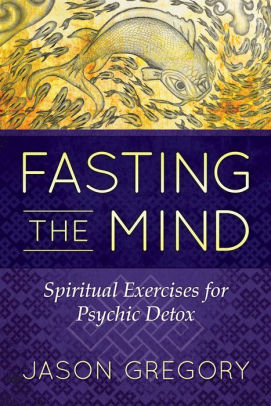The alleged premise of this book is to help readers declutter or detox their minds. A variety of methods from multiple branches of Asian and Chinese philosophy and spiritual practices are discussed extensively, including ideas from Hinduism, Taoism, and Zen Buddhism. The author emphasizes methods to help achieve detachment from the ego, offers a few suggestions about limiting toxic noise and frivolous mental input, and releasing imperatives to be goal-driven.
Eight chapters address separate issues and detox-methods for mind-fasting. Quotes from ancient primary resource materials underpin chapter themes. The author is a knowledgeable and skillful writer when it comes to presenting primary resources and the historical background of these methods.
That said, this book left me with mixed feelings. The descriptions of methods make it clear that mental fasting requires a lot of steps up a mountain. The promise of “exercises” in the subtitle aroused expectations of a holistic program the reader could follow. There is no outline of a gradual step-by-step daily, weekly or monthly regimen, or a guide to further resources to those unfamiliar with these techniques. The author blithely assumes that readers will be able to instantly figure all this out for themselves and somehow achieve the beneficial goals of mental-fasting, but doesn't bother to provide practical suggestions, all the while telling readers to become less goal-driven. Hmmm.
Yet more troubling is the author's tendency to write in a way that could be perceived as shaming readers who can't instantly transform all of these ancient methods into a personalized program. He's highly critical of a lot of things taken for granted in day-to-day contemporary life. Just for the record, not everyone in Western culture is hyped up on Red Bull or glued to a cell phone, computer, or television 24/7. Gregory is absolute spot-on in many of his criticisms of contemporary Western culture. Sadly, the people who might benefit most from mind-fasting may be, in some cases, the most unfamiliar with these techniques and ideas. They may also be put off by the uncompromising tone of the some of the writing.
Frankly, the writer comes off as being far too cerebral for a mainstream audience, or uninterested in providing suggestions for implementation so the folks in Third World Amerika have a chance of grasping these ideas and methods. I knew about most of these techniques and already do a lot of the recommended things, but still felt overwhelmed by the demands and shell-shocked by the lack of kindness, encouragement, and helpful tips. On the whole, people who dump a ton of expectations in my lap without providing an equal measure of resources, suggestions, and encouragement get the bum's rush out the door.
This IS a well-written and well-organized book for people familiar with scholarly material. It would be useful to readers who already know a lot about meditation, diet, eliminating behaviors and developing good ones. Perhaps one of those readers might be savvy enough to develop a mind-fasting program that's easily accessible to the average cubicle dweller. And maybe make a lot of money in the process. Others who might find the book valuable include people who are seeking a bevy of primary references to ancient meditation and mind-body control methods.
~review by Elizabeth Hazel
Author: Jason Gregory
Inner Traditions, 2017
150 pgs, $14.95 pb
Fasting the Mind: Spiritual Exercises for Psychic Detox

©
2010 - 2026
Facing North
